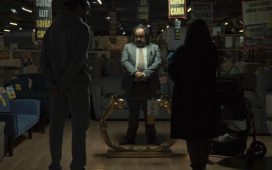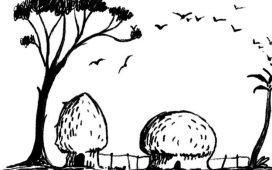Take your pick of extraordinary moments in this excellent documentary about the neurologist and writer Oliver Sacks. In 2015, aged 82, knowing he had months to live, Sacks sat down at home in New York and talked to the camera with great honesty. During his childhood in north London, he recalls his mother, a surgeon and gynaecologist, bringing home a foetus for him, aged 10 or 11, to dissect. Later, when she found out he was gay, she told him he was an abomination, that he should never have been born.
In his mid-20s, Sacks escaped London, his mother and homophobia for the freedom of California. There is a photo of him arriving at work on a huge motorbike, shaggy beard, puffing a cigar, looking like an extra from Easy Rider – only he’s wearing a white lab coat. This was around the time he was a physician to a California chapter of the Hells Angels and had an amphetamine habit that would have killed an ordinary man. But he was a champion weight-lifter; the bulk saved his life.
Sacks wrote that the most significant moment in his life was in the late-60s, treating victims of the 1920s encephalitis lethargica or “sleeping sickness” epidemic. Remarkable black and white home movie footage shows patients rising like Lazarus – if only fleetingly – after decades in catatonic states. Sacks’s 1973 book Awakenings, about the experience, was adapted into the Robin Williams movie. He recounts other famous case studies here, including Dr P, the brilliant music teacher with visual agnosia who mistook his wife for a hat, and gave Sacks the title for his best-known book.
Still, for me, the standout moment of the film is Sacks at a zoo, crouched in front of a chimpanzee enclosure: face pressed against the glass, nose to nose with a chimp, mirroring its movements, twisting his lips, becoming simian. What he is doing looks like a kind of extreme empathy, feeling his way into the animal. A friend with autism describes his approach as a clinician, getting inside the heads of people with neurological differences. He debunked the stereotype that people with autism didn’t have an inner life, she says – and demystified conditions like hers and Tourette syndrome.
Sacks, maybe because he knows the end is near, can be boyishly silly, too, gigglingly telling a story about sticking his willy into a bowl of jelly to cool a night-time erection. And, after being celibate for 35 years, there is a glorious happy ending to the story of his sexuality. What a man. Just writing this makes me want to watch the documentary all over again.














